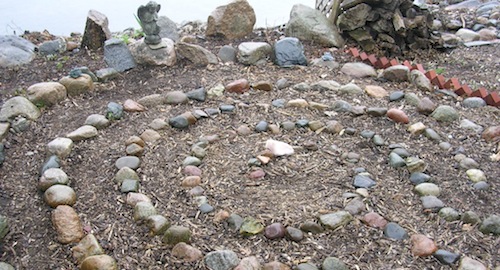The most recent issue of Comment (fall 2019) carries an editorial by the journal's editor, Anne Snyder, which I've been thinking about since first reading it a couple weeks ago. You can read it here at this link, and I encourage you to do so.
Snyder contrasts two approaches to societal concerns based on and expanding from her observations of two groups within a single weekend. One approach was full of handwringing, while the other was full of joy and expectation. The first emerged primarily from the elite while the second primarily from those who were "indigenous, immigrant, Asian, Latin, and African American." The first featured panels and debates while the second featured actual service in churches, social agencies, schools, and counselling centers within home neighborhoods."
She suggests the first group has much to learn from the second group. The churches associated with the first group tend to focus on preaching and teaching, whereas the churches associated with the second group often tend to function as the "field hospitals Pope Francis speaks about—welcoming everyone, regardless of sin or circumstance, and caring for the needs of the whole person, not just the soul." They often offer job banks and homeless shelters to their community in addition to the preaching and teaching.
"This realism," writes Snyder, "grants these local churches moral authority—not only in their home community, but in the world at large. And they offer an important lesson: If you want entrée to a hurting if skeptical world, care for it, don’t try to rule it."
And here’s one more thing she wrote in this editorial, "There’s a growing awareness that love can never be abstracted—we’re touched by incarnational living and doing, less prescription from on high."
So much is abstract these days with our social media tweets and Instagram shots, our disagreements about the evening news; I write this as a challenge to myself as much as to anyone. I do hope you’ll read her full editorial and consider what she wrote.
~~~
Interesting coincidence: when writing this post I found that the link in the above editorial by Anne Synder went to the same article featuring Pope Francis, which I had first read 6 years ago, that I had linked to in the prior post. Of all the pieces that have been written about Pope Francis what are the odds that my two little posts, whose origins are years apart, link to the same one? I believe there is something significant in coincidence, that a message of "pay attention" is being given even if I don't understand why. Maybe it is saying something to you? I wrote a bit more about this in my newsletter.
~~~
[Photo: taken of stars in the windows of the American Swedish Institute.]


